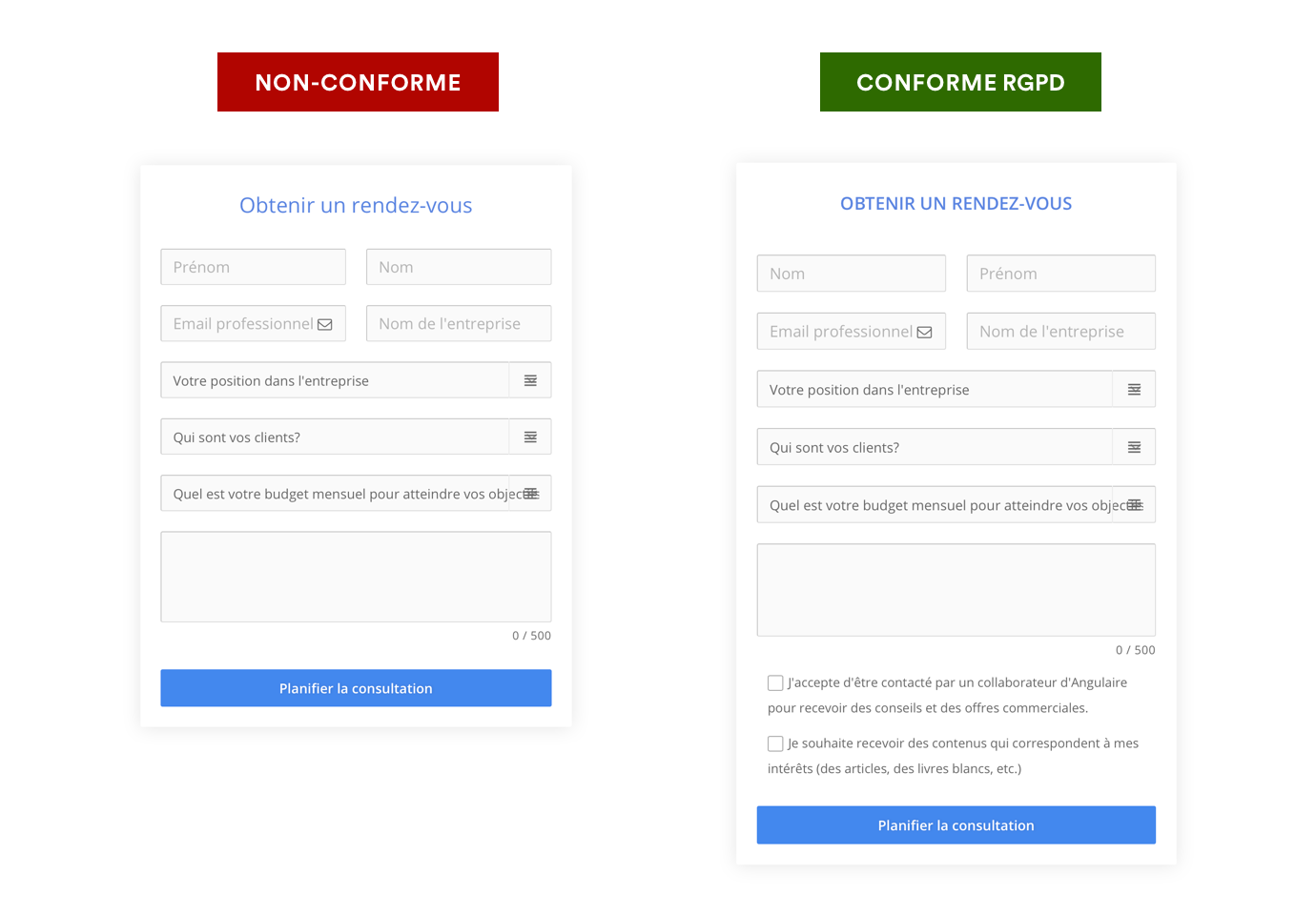In May 2017, The Economist qualified the personal data as the most valuable resource in the world ahead of oil. Indeed, they allow businesses toimprove their communication with their customers and this will positively impact the customer experience. However, since personal data are so valuable, they are vulnerable to theft or misuse, which has led consumers to demand to know how businesses use and store their personal data. Not everyone is convinced that businesses are doing enough to protect their data. In a report published by the Chartered Institute of Marketing, 57% of consumers say they don't trust businesses for securing their data.Another report published by Symantec reveals that 90% of businesses are not able to delete customer data, and that 60% do not know how to do it due to lack of a system. We quickly understand the gap between consumer concerns and business control over the security of sensitive data.
The challenges businesses face in the face of consumer demands for the deletion of personal data
The numbers are even more alarming when it comes to RGPD marketing. More than 41% of marketers admit that they do not understand the challenges of the new regulations, and do not know the best practices concerninguse of personal data.The establishment of this new RGPD regulation makes sense when you understand how people who use personal data on a daily basis care about securing data, and consumer interests.
The European Union introduced the GDPR in May 2018, in order to impose a new set of laws intended to protect personal data and to enforce consumer rights in Europe.
What is the RGPD?
The General Data Protection Regulation (RGPD) is a new device concerning the protection of (digital) privacy, it was put in place on May 25, 2018.To put it simply, this means that companies will now be required to integrate privacy settings in their web products and solutions. Businesses also need to improve the way they requestpermission to use data, document how they use personal data and strengthen communication about the risks of treatments. Since it is a regulation and not a directive, it cannot be ruled out or ignored. In fact, non-compliance with these rules can lead to fines of up to 20 million euros or 4% of your turnover. Needless to say that this is very recent, and that the European Union takes this subject very seriously.
Why introduce the GDPR in 2018?
The RGPD involves an intense modification of all data protection topics. This is a radical change in how the EU wants personal data to be managed. The new EU approach now puts individuals first, they need to be protected and empowered, rather than being exploited or ignored. This new approach to data protection is the EU's way of making businesses, big and small, more responsible for their actions. EU regulators believe that businesses exploit personal data for their own benefit and don't proof of transparency as to how they use them. The GDPR was designed to end all of this and put the power back in the hands of consumers.
Why do it now?
The main reason for this introduction is that the old regulations on the protection of personal data were from 1980, and the last update was in 1995.These principles of data confidentiality did not take into account the developments we have been experiencing for years with social networks, smartphones, and more generally new technologies. Moreover, the old regulation was only a directive, so all companies could easily freely exclude themselves from it. But since May 25, 2018, this is no longer the case.
While the contribution of new regulations When it comes to data protection across Europe should be good news for all marketers, the GDPR involves new challenges for marketing teams communicating with customers based in the European Union.
What is the impact of the GDPR on marketing?
At first glance, GDPR may seem radical and frighten small businesses and individual entrepreneurs. But only three areas concern marketers: authorization to use data, access to data, and data harvesting.
1. Authorization to use data
Data collection and consent to the collection of these are an essential component of the RGPD. A visitor who downloads an ebook does not necessarily want to be contacted by your sales department. Therefore, you must expressly receive their consent in order to contact them freely afterwards. What does that mean in concrete terms? In practice, you must gather confirmation from your prospects, customers, partners and others that you have the right to contact them. You can do this by adding a simple box in your forms to be sure of gather their consent.Instead of assuming that visitors who fill out a form want to receive marketing emails from us, we now ask visitors to sign up for our marketing lists by checking the sign-up box.

To put it simply, none marketing communication should not be sent to the email address of a person who did not check this box which represents consent on the right.
2. Provide access to personal data
The right to be forgotten gives people the opportunity to delete personal data outdated or inaccurate in search engines for example. The GDPR offers Internet users a new way to directly access and delete the data that companies have on them. This allows you to better understand how they are collected and used. Regardless of your activity, as long as you collect personal data, you are required to provide access to your contacts and customers in order to validate or withdraw consent to their use. Concretely, you must always include an unsubscribe link in your email marketing, and a link to their profile to allow users to manage their preferences.
3. Streamline data collection
As marketers, we can all be guilty of collecting a bit more data from one person than we actually need. The GDPR now requires us to legally justify the processing of personal data that we collect. Don't worry, it's not as scary as you might think. This means that you should ask for only the personal data you really need, and avoid collecting useless data.Is your business in compliance with all the provisions of the GDPR? Are you having difficulty complying with all the points imposed by this new regulation?
